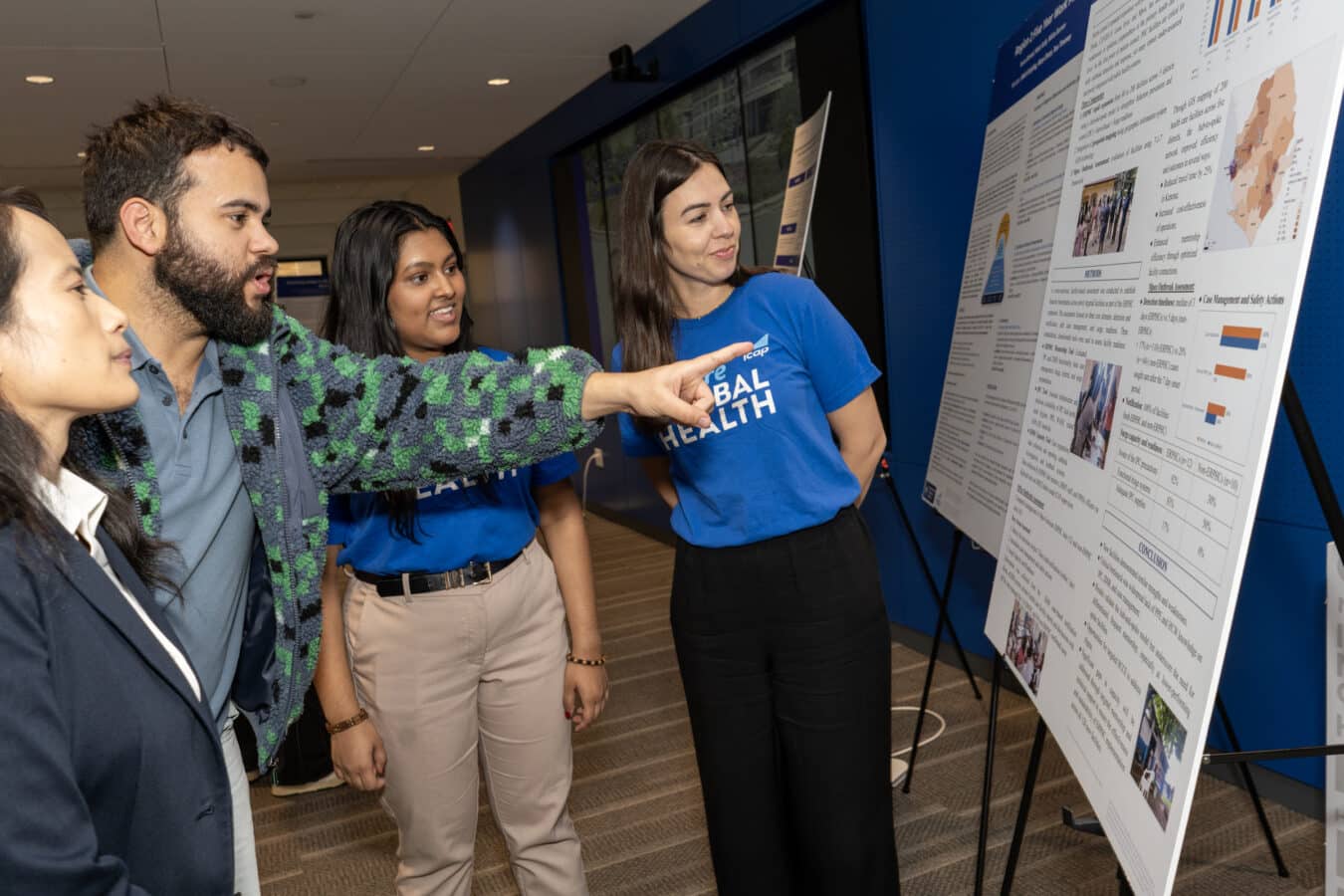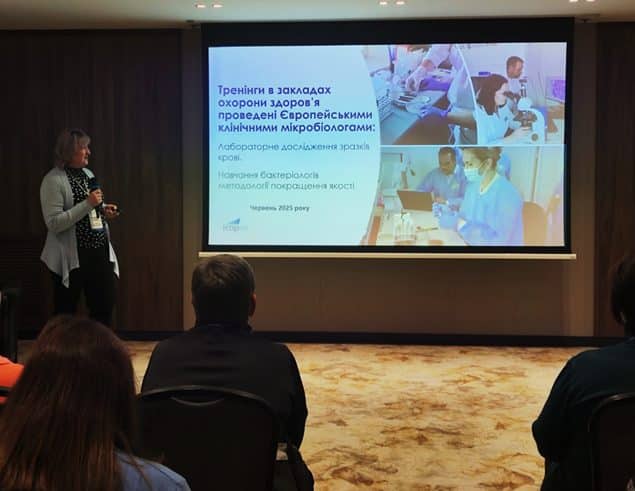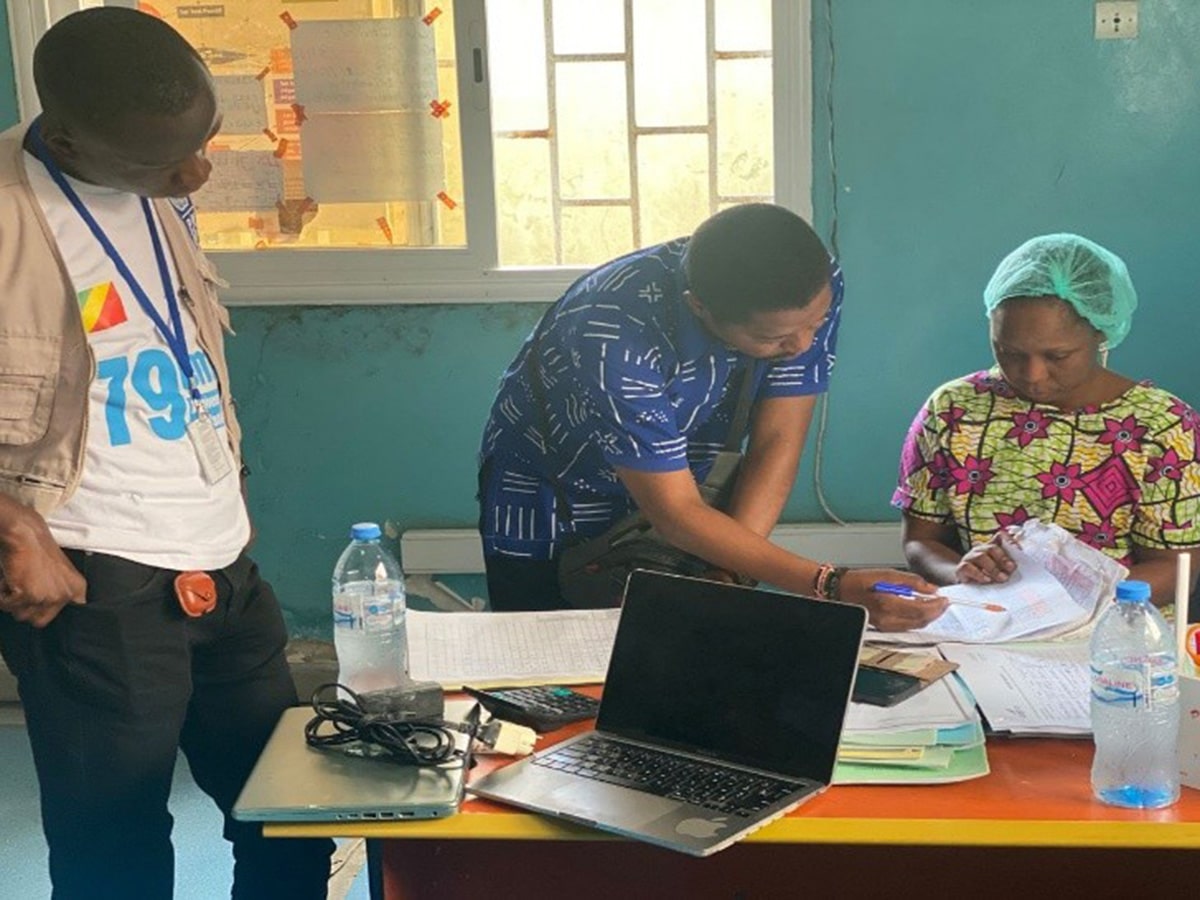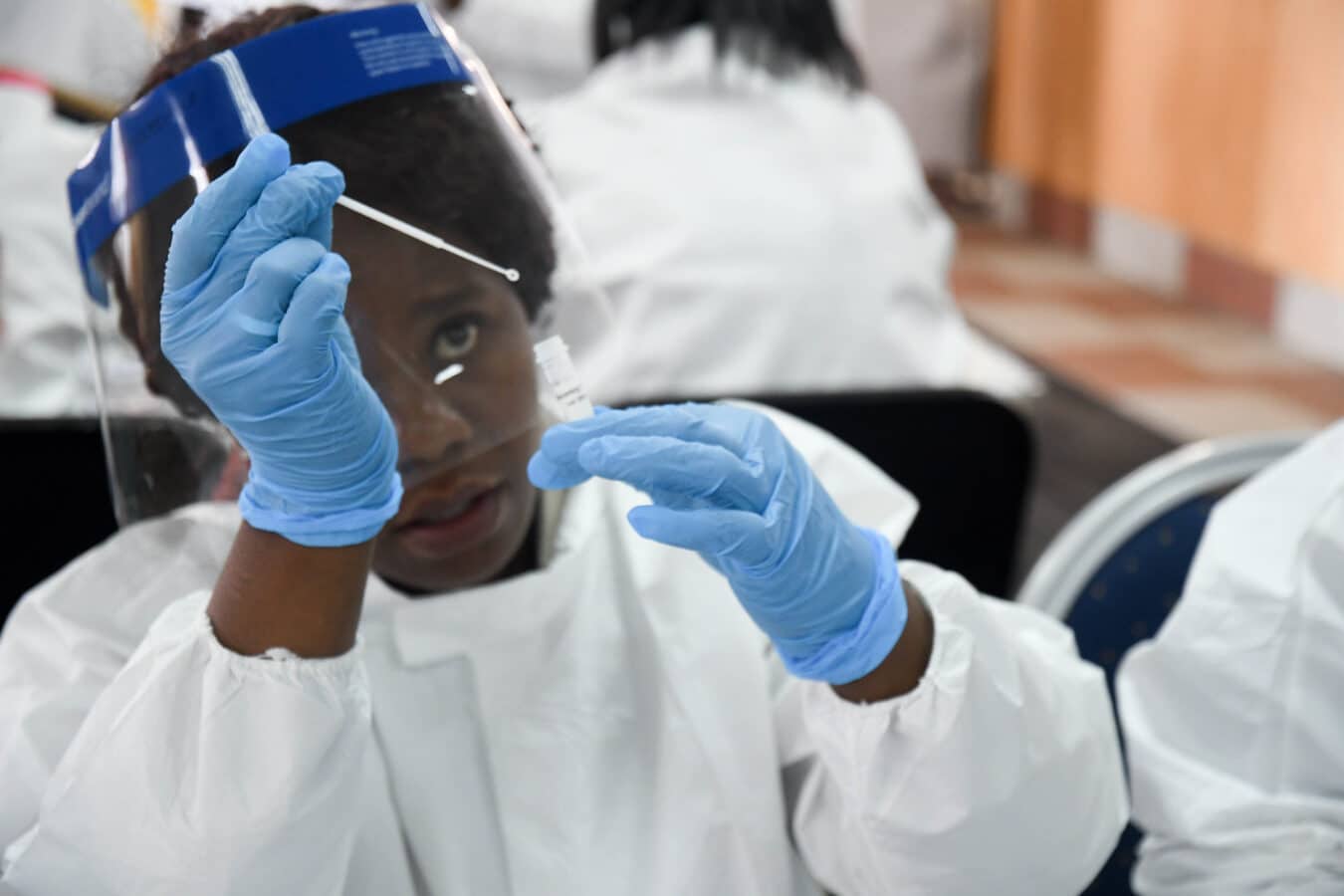As a public health partner with the United Republic of Tanzania for two decades, ICAP proudly participated in this year’s commemoration of World Drug Day (the International Day Against Drug Abuse and Illicit Trafficking in Drug), showcasing its longstanding commitment to families and communities of people in recovery from opioid dependency as well as to those living with HIV.
The event, which took place on June 30 at Nyamagana Stadium in Mwanza, was sponsored by the Drug Control and Enforcement Authority (DCEA). Tanzanian Prime Minister, the Right Honorable Kassim Majaliwa and a range of other government officials attended and ICAP in Tanzania joined other public health program partners to highlight various interventions being implemented to support people who use drugs (PUID) and people who inject drugs (PWID).
This year’s theme – “The Evidence is Clear: Invest in Prevention” – aligned with ICAP’s ongoing emphasis on prevention as a key tool for improving health outcomes, especially among people facing the often-interrelated risks associated with opioid use disorder and HIV.
In remarks during the ceremony, Haruka Maruyama, MPH, ICAP’s country director in Tanzania, pointed to the launch of the Medication-Assisted Treatment (MAT) clinic that the Prime Minister established at Mwanza Regional Referral Hospital (Sekou Toure Clinic) in 2018 with technical support from ICAP in partnership with the President’s Emergency Plan for AIDS Relief (PEPFAR) and the Centers for Disease Control and Prevention (CDC).

Haruka Maruyama, ICAP country director in Tazania, addresses the audience at World Drug Day in Mwanza, Tanzania on June 30, 2024.
“I am happy to inform you so far, approximately 770 MAT enrolled beneficiaries have benefited from MAT services,” Maruyama noted. “Currently, it has 338 clients actively enrolled as of May, 2024.”
She added: “Through these services the lives of beneficiaries have improved, and risky behaviours are declining, psychological and mental health problems are being reduced. Collaboration from the Ministry of Health and DCEA has been instrumental in achieving this success.”
During the event, ICAP’s innovative mobile clinic was parked on the grounds for people to tour, and ICAP team members staffed a booth showcasing ICAP’s care and treatment services. At the booth, Dr. John Kahemele, deputy director of ICAP in Tanzania, briefed the Prime Minister on ICAP’s approaches to supporting people who use drugs and people who inject drugs through the MAT services it supports at Sekou Toure Clinic.
In collaboration with MAT clinic and STEPS (a local civil society organization), ICAP has been instrumental in mapping current and new community hotspots, sensitizing community and law enforcement, linking PWID/PWUD to MAT services, facilitating continuous treatment support, and providing health and vocational trainings to volunteers. In addition, ICAP conducts community outreach to PWID/PWUD at community hotspots, provides HIV testing and other prevention services – including HIV self-testing, Pre-exposure Prophylaxis (PrEP), information and education materials, and condoms – and supports both the community and the health facility to ensure those in need of services receive the most effective care.
About ICAP
A major global health organization that has been improving public health in countries around the world for two decades, ICAP works to transform the health of populations through innovation, science, and global collaboration. Based at Columbia Mailman School of Public Health, ICAP has projects in more than 40 countries, working side-by-side with ministries of health and local governmental, non-governmental, academic, and community partners to confront some of the world’s greatest health challenges. Through evidence-informed programs, meaningful research, tailored technical assistance, effective training and education programs, and rigorous surveillance to measure and evaluate the impact of public health interventions, ICAP aims to realize a global vision of healthy people, empowered communities, and thriving societies. Online at icap.columbia.edu








